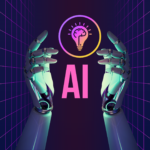Artificial Intelligence (AI) has immense potential to transform industries, enhance productivity, and improve lives. However, with this transformative power comes a range of ethical considerations and moral implications that need to be navigated. Let’s explore the key aspects of ethics and AI:
1. Bias and Fairness: AI systems are trained on data, and if that data is biased or incomplete, it can perpetuate unfair outcomes. It is essential to ensure fairness in AI algorithms, addressing biases and taking steps to prevent discrimination based on factors such as race, gender, or socioeconomic status.
2. Transparency and Explainability: The lack of transparency in AI algorithms can lead to concerns about accountability and decision-making processes. Ensuring transparency and explainability in AI systems is crucial, allowing users to understand how decisions are made and enabling them to identify and address potential biases or errors.
3. Privacy and Data Protection: AI often relies on large amounts of personal data, raising concerns about privacy and data protection. Safeguarding personal information, ensuring informed consent, and implementing robust security measures are essential to protect individuals’ privacy rights.
4. Job Displacement and Economic Impact: The automation capabilities of AI may lead to job displacement in certain industries. It is important to address the potential impact on the workforce and develop strategies to support individuals in transitioning to new roles or acquiring new skills.
5. Autonomous Systems and Accountability: AI-powered autonomous systems, such as self-driving cars or drones, raise questions about responsibility and accountability. Determining legal and ethical frameworks for the actions and decisions of autonomous systems is crucial to ensure public safety and establish liability.
6. Human-AI Collaboration: The relationship between humans and AI systems needs to be carefully considered. Striking the right balance between human control and AI assistance is essential to ensure that AI complements human capabilities rather than replacing them entirely.
7. Ethical Decision-Making in AI Development: Embedding ethical considerations in the development and deployment of AI systems is crucial. Organizations and developers should consider the potential impacts of their AI technologies, adhere to ethical guidelines, and engage in responsible innovation.
8. Robust Governance and Regulation: Establishing governance frameworks and regulations around AI is necessary to address ethical concerns. Governments, industry organizations, and research communities play a vital role in setting standards, guidelines, and policies that promote ethical AI practices.
9. Long-Term Impact and Unintended Consequences: Anticipating and addressing the long-term impact of AI is important to mitigate unintended consequences. Continuous monitoring, evaluation, and adaptation of AI systems are necessary to identify and rectify any potential harmful effects that may arise over time.
10. Public Engagement and Education: Open dialogue and public engagement are essential in shaping the ethical landscape of AI. Education and awareness about AI, its capabilities, limitations, and ethical implications should be promoted to ensure that individuals and society at large can make informed decisions and actively participate in the AI discourse.
Addressing the ethical implications of AI requires a multidisciplinary approach involving technologists, ethicists, policymakers, and society as a whole. By proactively addressing ethical considerations, we can ensure that AI is developed and deployed in a responsible and beneficial manner, ultimately creating a future where AI aligns with our moral values and contributes to the betterment of humanity.









